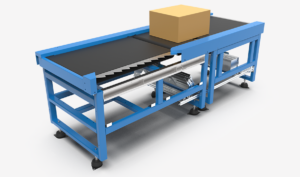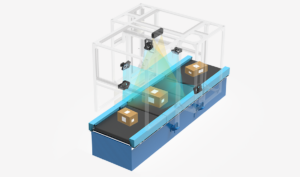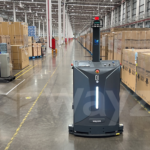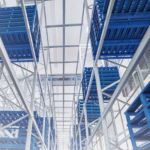The booming e-commerce industry has ushered in a surge in parcel deliveries, stretching traditional logistics infrastructure to its limits. To meet this growing demand and ensure efficient, cost-effective delivery, parcel automation has emerged as a game-changer.
This blog dives deep into the world of parcel automation, exploring its benefits, key technologies, and potential future in shaping the delivery landscape.
What is Parcel Automation?
Simply put, parcel automation leverages technology to streamline the entire parcel sorting and delivery process. This includes tasks like:
- Inbound sorting: Automatically sorting incoming parcels based on size, destination, and other criteria.
- Routing and consolidation: Optimising routes and consolidating packages to ensure efficient delivery.
- Warehouse management: Managing inventory, picking, and packing parcels with minimal human intervention.
- Last-mile delivery: Utilising automated delivery vehicles and drones for faster and more efficient deliveries.
Benefits of Parcel Automation
- Increased Efficiency: Automated systems can process parcels significantly faster than manual labor, leading to faster delivery times and higher throughput.
- Reduced Costs: Automation can significantly reduce labor costs, leading to lower operating expenses and improved profitability.
- Improved Accuracy: Automation minimises human error, resulting in fewer sorting errors, lost packages, and delivery delays.
- Enhanced Scalability: Automated systems can easily adapt to increased parcel volumes, making them ideal for businesses experiencing rapid growth.
- Improved Customer Experience: Faster deliveries, accurate tracking information, and flexible delivery options contribute to a more positive customer experience.
Key Technologies Driving Parcel Automation
- Robotics: Robots are employed for various tasks, including sorting, picking, packing, and even loading and unloading trucks.
- Artificial Intelligence (AI): AI is used for tasks like address recognition, route optimisation, and predictive maintenance.
- Internet of Things (IoT): Sensors integrated into parcels and warehouses provide real-time tracking and data insights for improved decision-making.
- Machine Learning (ML): ML optimises sorting algorithms, predicts delivery times, and identifies potential bottlenecks in the delivery process.
The Future of Parcel Automation
The parcel automation market is expected to see significant growth in the coming years, driven by factors such as the continued rise of e-commerce, technological advancements, and growing labor costs.
Here are some potential future trends in parcel automation
- Increased adoption of autonomous vehicles and drones for last-mile delivery.
- Integration of blockchain technology for enhanced transparency and security.
- Development of even more sophisticated AI and machine learning algorithms for predictive analytics and optimisation.
- Growing emphasis on sustainability solutions, such as electric delivery vehicles and solar-powered sorting facilities.
Parcel automation presents a transformative opportunity for businesses in the logistics and delivery sector. By embracing this technology, companies can improve efficiency, reduce costs, enhance customer satisfaction, and gain a competitive edge in the rapidly evolving e-commerce landscape.
Frequently Asked Questions
- What are the biggest challenges to implementing parcel automation?
The main challenges include upfront investment costs, integration with existing infrastructure, and concerns about job displacement. - How can businesses get started with parcel automation?
Start by conducting a thorough needs assessment to identify areas where automation can be most beneficial. Research different automation solutions and vendors, and develop a clear implementation plan. - What are the environmental benefits of parcel automation?
Automated systems can help reduce fuel consumption, emissions, and paper waste, contributing to a more sustainable supply chain. - How will parcel automation impact the future of work?
While automation may lead to some job displacement, it will also create new opportunities in areas such as system design, maintenance, and data analysis. - What are some of the leading companies in the parcel automation market?
Some of the leading players include Dematic, BEUMER Group, Vanderlande, Swisslog, and Honeywell Intelligrated.
Parcel automation is revolutionising the way we deliver goods, creating a more efficient, cost-effective, and sustainable delivery ecosystem for the future.
SmartlogitecX, empowered by WayZim Technologies, is at the forefront of revolutionising Warehouse Automation in the Australian and New Zealand market. Be part of the logistics transformation. Embrace SmartlogitecX’s locally-focused, globally-backed expertise. Redefine your operations, harnessing the power of technology made for Australia and New Zealand. Ready to elevate your logistics? Reach out SmartlogitecX sales team for your customised automation solution.





